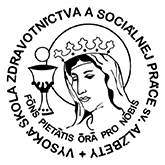Course-review proceedings and instructions for reviewers
Manuscripts are assessed anonymously by the editorial board and, subsequently, in the review procedure by at least two independent erudite experts – included in a non-published list of external reviewers of Acta Missiologica‘s editorial board, as well as experts not included in the list.
Articles are assessed at two levels. The first level is professional adequacy corresponding to the journal‘s specialization. This assessment is carried out by the editorial staff. Provided that the professional criteria are met, the text is sent for the review process. The second level of assessment is carried out through the review process. Contributions are assessed in the review process if all professional criteria related to content and format mentioned in the authors‘ instructions are met.
The editorial board of the academic periodical Acta Missiologica turns to foreign and Slovak erudite professionals with a plea to review contributions with the aim of broadening the scope of the periodical in the area of Christian mission and missiology, charity, social, humanitarian and development work on theoretical, research and applied levels. It has a non-public listing of external reviewers and, when appropriate, it can also reach out to reviewers that are not on the listing. Moreover, when addressing the experts, the Journal oversees the maximization of their diversity.
If the author’s contribution is assessed positively in the first-level assessment by the members of the editorial board, and if the article complies with all professional and formal criteria listed in the instructions for authors, the contribution will proceed to the second-level review process.
At the second stage of the review process, the editorial department of Acta Missiologica asks at least two independent experts to assess the contribution. Since the review process has become open in 2019, the authorized experts are informed of the author's name, as well as the institution of his/her employment, and, as with the previous reciprocally anonymous review process, the reviewers shall not be involved in any conflict of interest against the institution whose article they are evaluating and shall not be involved in any other kind of conflict of interest against the contribution or the author. Otherwise, their admission into the review process shall not be accepted. For these reasons, prior to becoming involved in the review process, the addressed experts must communicate any conflicts of interests with the editors of the Journal in order to identify potential conflicts of interest in a timely manner. Therefore, the reviewers shall also sign a non-conflict of interest statement.
The publishers and editors issuing their own journals shall not abuse their position (the evaluation process must be carried out in full independence of the author).
To review the article, both reviewers will fill in a special form provided by the editorial board.
The assessments of the reviewers have to be impartial, constructive and honest. Their opinions must be drawn up in a clear manner supported by argument. Personal, inimical or abusive assessments of the authors are considered unacceptable. The assessments of the reviewers shall refer explicitly to the intellectual contribution and expertise of the manuscript.
Since the review process has become open in 2019 the review assessments are sent to the author mentioning the names of the reviewers and the institutions of their employment. A list of the reviewers is attached at the end of this issue. In accordance with the transparency principle, the list of article reviewers for the period from 2011 to 2018 is placed here
Upon receipt of a request for peer review of the author's article, the addressed experts (reviewers) should respond in a timely manner, especially if they cannot carry out the review in order to avoid undue delay of the review process.
Since the review process has become open in 2019, the Journal cares more about maintaining the principles of transparency, objectivity, correctness and ethical behaviour. It deals with it in the following way:
1) independent members of the Journal's Scientific Board appoint a relevant academic expert (Guarantor of issue reviewers) to supervise the maintenance of all the aforementioned principles during the review process.
2) The Journal established cooperation with the database Publons in order to achieve even more transparency in the reciprocal anonymous review procedure.
If the review is negative, the contribution will be returned to the author.
If there are any review comments, it is necessary for the author to address them – either by accepting them or by justifying their refusal. However, the Journal's policy considers it preferable that the authors work on the amendments and comments which they receive from the reviewers.
If both reviews are negative, or if one of them includes substantial review comments, the contribution will be returned to the author to be rewritten, taking into consideration any comments provided in the review assessment. The revised contribution will then be subject to a new review process. If the contribution is recommended for publication, it will be included in one of the issues of the academic periodical Acta Missiologica.
For more information on ethical issues of mutual assessment and conflicts of interest please refer to the COPE guidelines or the Elsevier company's policy.
Acceptance or refusal of the article
The aim of the Journal is to provide the authors of the articles with information regarding the acceptance or rejection of their article no later than seven months following receipt of the manuscript.

